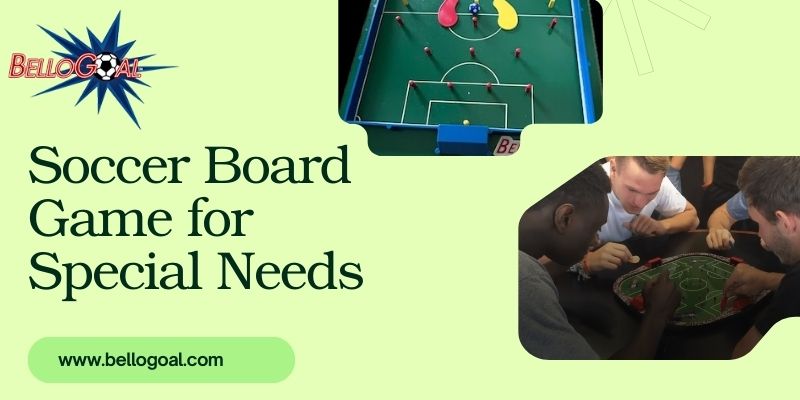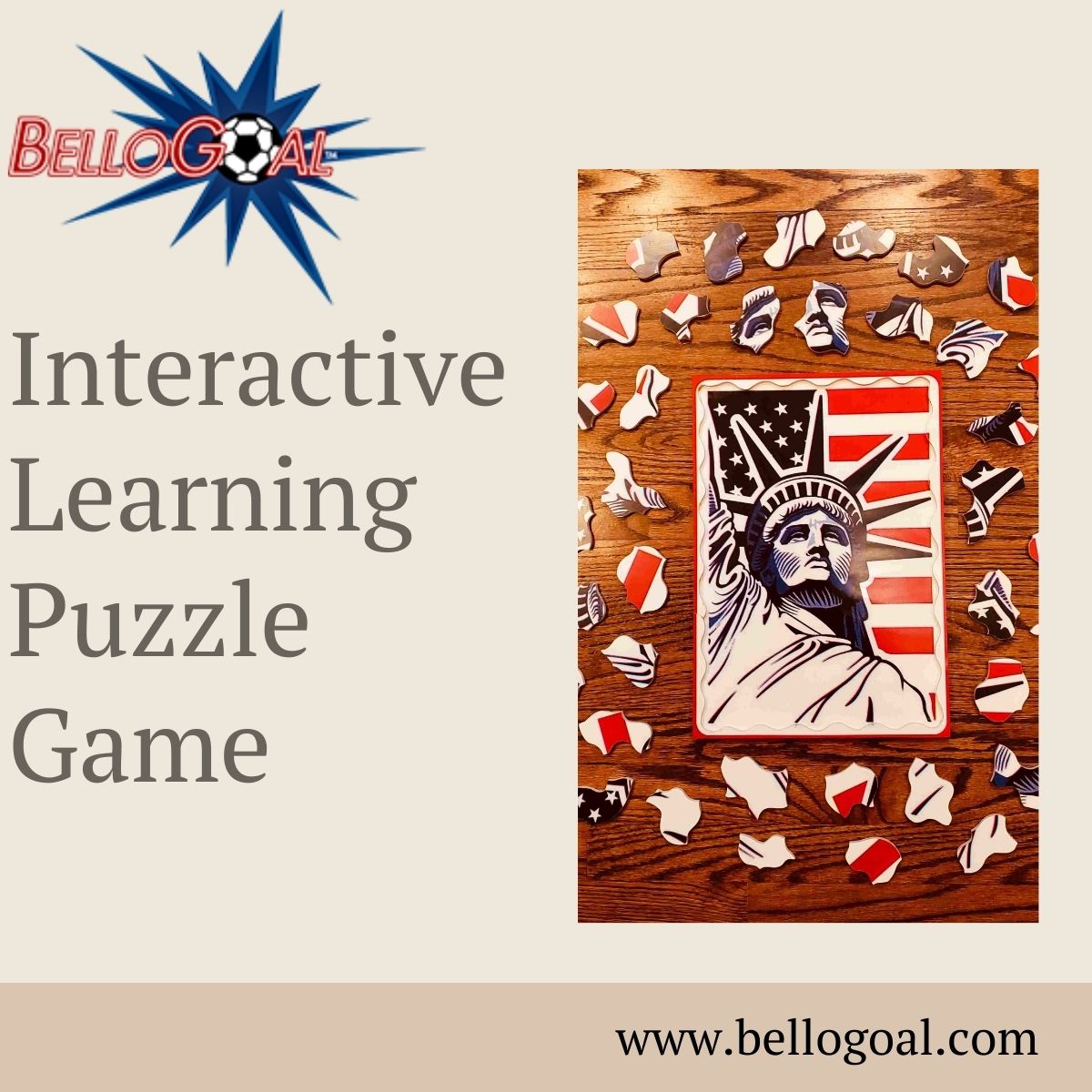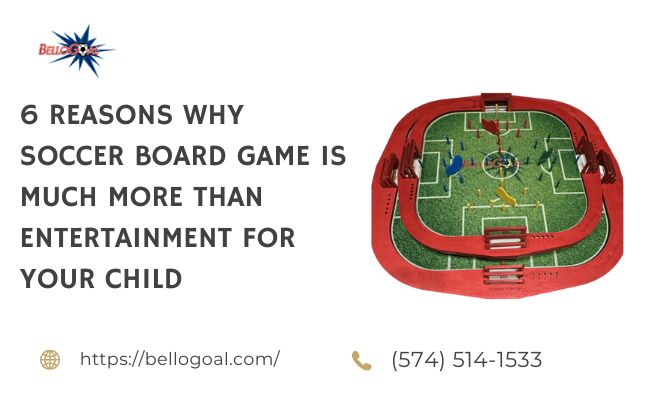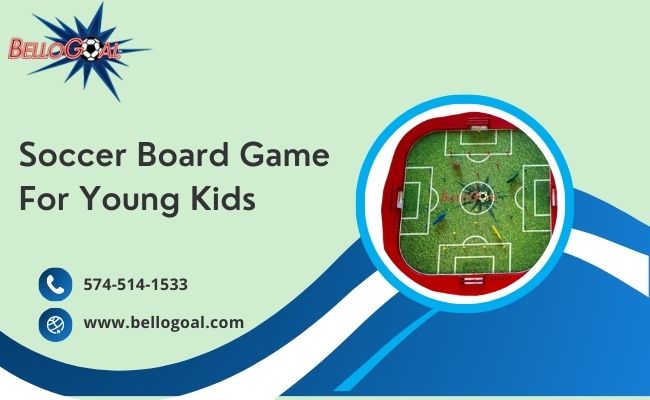For many children with special needs, finding inclusive and engaging activities that support both development and enjoyment remains a significant challenge. Traditional team sports, while beneficial in many ways, often present barriers such as complex coordination, fast-paced gameplay, and high social expectations. As a result, children with developmental, physical, or communication challenges may feel excluded from group participation, missing out on critical opportunities to build skills and confidence.
Research in therapeutic play has shown that structured games, particularly those adapted for special needs, play a crucial role in improving motor coordination, communication, and social interaction. Among these, the soccer board game for special needs stands out as an innovative and family-friendly solution. Designed with accessibility in mind, it brings the spirit of the game into a format that promotes inclusion, engagement, and developmental growth, all through fun and interactive play. In this blog, you will read about a soccer-themed board game that isn’t just about recreation—it’s a powerful tool that fosters motor skill development, encourages communication. Keep reading.
What Makes a Soccer Board Game for Special Needs Unique?
Unlike standard board games, a soccer-themed version tailored for special needs is built with accessibility at its core. From its visual layout to the tactile design of the pieces, every aspect supports a more comfortable and intuitive experience for players of all abilities.
Large, colorful components make gripping and moving game pieces easier, supporting fine motor coordination. Simple rules, clear instructions, and turn-based play create a structured yet relaxed environment. Visual cues help children process actions at their own pace. Most importantly, the game offers a chance for children to succeed without pressure, fueling self-esteem and joy. By focusing on a universally loved theme like soccer, the game becomes more than just an activity. It invites children into a shared experience that promotes inclusion and celebrates every small victory.
Enhancing Motor Skills Through Engaged Play
Developing fine and gross motor skills often requires repetition, focus, and positive reinforcement. Traditional therapies feel rigid or task-driven, but a soccer board game shifts that experience into something fun and meaningful.
Each movement—picking up pieces, rolling dice, guiding a character—builds hand strength and coordination. The act of engaging with the board physically helps with muscle control, spatial awareness, and bilateral movement.
Games like these are especially effective in occupational therapy sessions, where therapists use playful tasks to achieve long-term developmental goals. Children stay engaged longer because the activity feels like play rather than structured exercise. This approach helps them grow skills in a natural, joyful way.
Encouraging Communication and Social Interaction
Communication—both verbal and non-verbal—is often an area where children with special needs seek extra support. A soccer board game for special needs becomes a tool for meaningful interaction. Whether a child is learning to take turns, asking questions, following directions, or expressing excitement, the game provides a safe and supportive platform to practice these skills. It encourages conversation, facial expression, and listening in an environment that feels familiar and non-judgmental.
Children experience the joy of shared attention and teamwork, even in a small group setting. These social moments promote emotional regulation, empathy, and collaboration—skills that carry over into daily routines, classrooms, and peer relationships.
A Favorite Among Families, Educators, and Therapists
One of the most powerful aspects of this type of board game is its versatility. Parents appreciate a screen-free activity that brings everyone to the table. It opens the door to bonding moments, laughter, and learning—all wrapped in a theme children recognize and love. Educators use it to promote inclusion in the classroom. When children with and without special needs play together, it encourages empathy, understanding, and teamwork.
Therapists see it as a reliable resource for reinforcing motor planning, sequencing, and expressive language. Many include it in therapy toolkits because of its multi-sensory appeal and flexibility. The game is more than an aid—it’s a bridge connecting therapy goals to real-world outcomes, all while building confidence and joy.
More Than a Game: Learning in Every Move
Board games have long been recognized for their cognitive benefits, and this one is no exception. A soccer-themed version brings an educational element into every move, counting spaces, recognizing patterns, making decisions, and planning next steps.
For children who thrive on visual or hands-on learning, the board becomes an interactive classroom. Instead of flashcards or worksheets, they’re immersed in a world where every move teaches something new. This style of learning, powered by curiosity and imagination, supports retention and real-life application. It’s play with a purpose, and it works.
Empowering Inclusion, One Game at a Time
At its heart, a soccer board game for special needs is a celebration of what’s possible when play is designed for everyone. It empowers children to be active participants in a shared experience, no matter their abilities. By focusing on connection, development, and fun, the game redefines what it means to be part of a team. It’s a reminder that inclusion starts with thoughtful design—and that every child deserves a chance to play, grow, and belong.
Final Thoughts
Inclusion doesn’t need to be complicated—it needs to be intentional. With its thoughtful design and wide-reaching benefits, a soccer board game tailored for special needs offers more than entertainment. It delivers progress, connection, and happiness in every round. For parents, teachers, and therapists looking to make playtime meaningful, this game brings the field to the table, where every move counts, and everyone wins.




